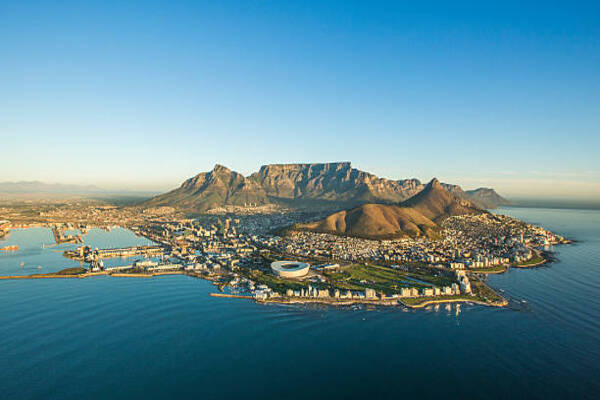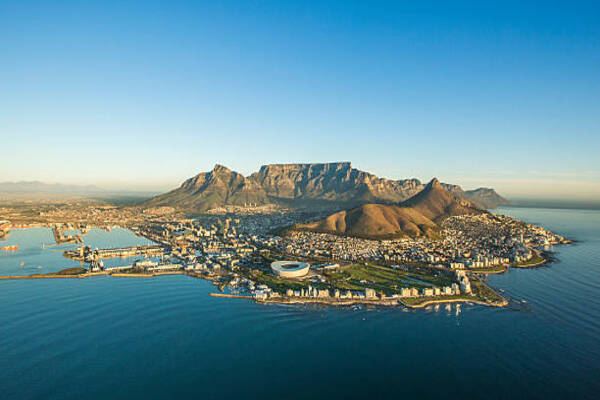Wednesday, May 14th, 2025

The South African tourism sector has long been an important pillar of its economic foundation and has contributed significantly to the country's growth and development. In 2024, the tourism industry accounted for more than 3% of South Africa's GDP, supporting nearly 700,000 jobs. This makes tourism one of the key driving forces of the country's economy, which emphasizes its importance not only for the national economy, but also for the livelihoods of many citizens.
Given the important role of the sector, the South African government's initiative to modernize the travel process is welcome. The introduction of the e-Visa system has created a lot of optimism among tourism stakeholders. The digital visa aims to streamline the international visitor process, making it easier for tourists to enter the country. Due to the global trend towards digitalization, such initiatives are seen as an essential step in aligning South Africa's tourism industry with modern expectations.
However, while E-Visa's deployment is a step further, many in the industry claim they have not addressed some of the deeper, systematic issues that are hindering the sector's full potential. Digital travel approval may be an important tool, but they are not all treatments. Tourism experts quickly point out that while the world adopts digital solutions, relying solely on technology is not enough to solve many of the challenges facing the South African tourism industry. They emphasize that countries need more than just a digital visa platform to effectively compete in the world's tourism phase.
Tourism numbers in South Africa in 2024 reflect these ongoing struggles. International tourist arrivals have risen by just 5.1% to 8.9 million visitors, but the sector is 12.8% below the pre-pandemic level, particularly the level recorded in 2019. Thailand, for example, reached 35 million international visitors last year, roughly matching its pre-pandemic number. Mexico surpassed previous tourist records by welcoming more than 45 million visitors, while Indonesia rebounded to around 90% of 2019 figures.
The main factor that contributes to the success of these countries is the strong performance of China and India as key source markets. Both countries were essential to fostering the growth of international tourism in countries such as Thailand, Mexico and Indonesia. However, South Africa's attempts to capitalize on these markets face a major hurdle. The country's tourist visa process, particularly the e-Visa system, has experienced delays and inefficiencies that have craved potential visitors. The difficulties in effective communication with applicants and processing E-VISA applications further hinder the country's ability to attract tourists from these favorable markets.
According to the Ministry of Home Affairs (DHA), 58% of visa denials in the second half of 2024 were due to expired travel dates, pointing to serious inefficiencies in the application process. Furthermore, previous reports revealed that only 3.2% of visa applications have been approved. This has become apparently a clear indication of the systemic challenges plaguing the country's visa system. David Frost, CEO of the South African Tourism Services Association (SATSA), argues that South Africa relies on outdated source markets and seasonal tourism peaks, rather than focusing on attracting tourists from burgeoning markets such as China and India.
Another important challenge facing the tourism industry in South Africa is its infrastructure. Recently ranked as the best airport in Africa, Cape Town International Airport still lacks a fully operational e-gate system. This is a basic feature that many modern airports around the world have already introduced. Airports Company South Africa (ACSA) has yet to provide a clear timeline of required upgrades, leaving the country's major airports in terms of technology infrastructure. Without such upgrades, travelers could continue to face long delays and inefficiencies that could prevent South Africa from choosing to choose their destination.
The Ministry of Home Affairs continues to describe the e-Visa platform as “work in progress.” Despite the optimism surrounding that possibility, many applicants report ongoing issues on the online portal, including technical issues, lack of support, and unclear eligibility criteria. These challenges reflect the growing frustration of both tourism experts and international visitors as governments struggle to keep up with the demand for efficient visa processing.
In response to these ongoing issues, the DHA has expanded certain visa concessions to ease the growing backlog and address the slow pace of digitalisation paper records. This move may provide some relief, but it is not a permanent solution. The industry needs greater improvements in visa processing times and more consistent communication with applicants to restore confidence in South Africa as a destination for international travelers.
While the implementation of an ETA platform could modernize border management and attract more tourism investments, industry leaders agree that it should involve improved airport infrastructure, faster processing times and improved target marketing strategies. Only by addressing these core issues can South Africa achieve meaningful progress in tourism recovery and remain competitive in the global tourism market. Without these essential upgrades, South Africa risks delaying a more agile tourism economy that is quick to adapt quickly to the evolving demands of international travelers.



